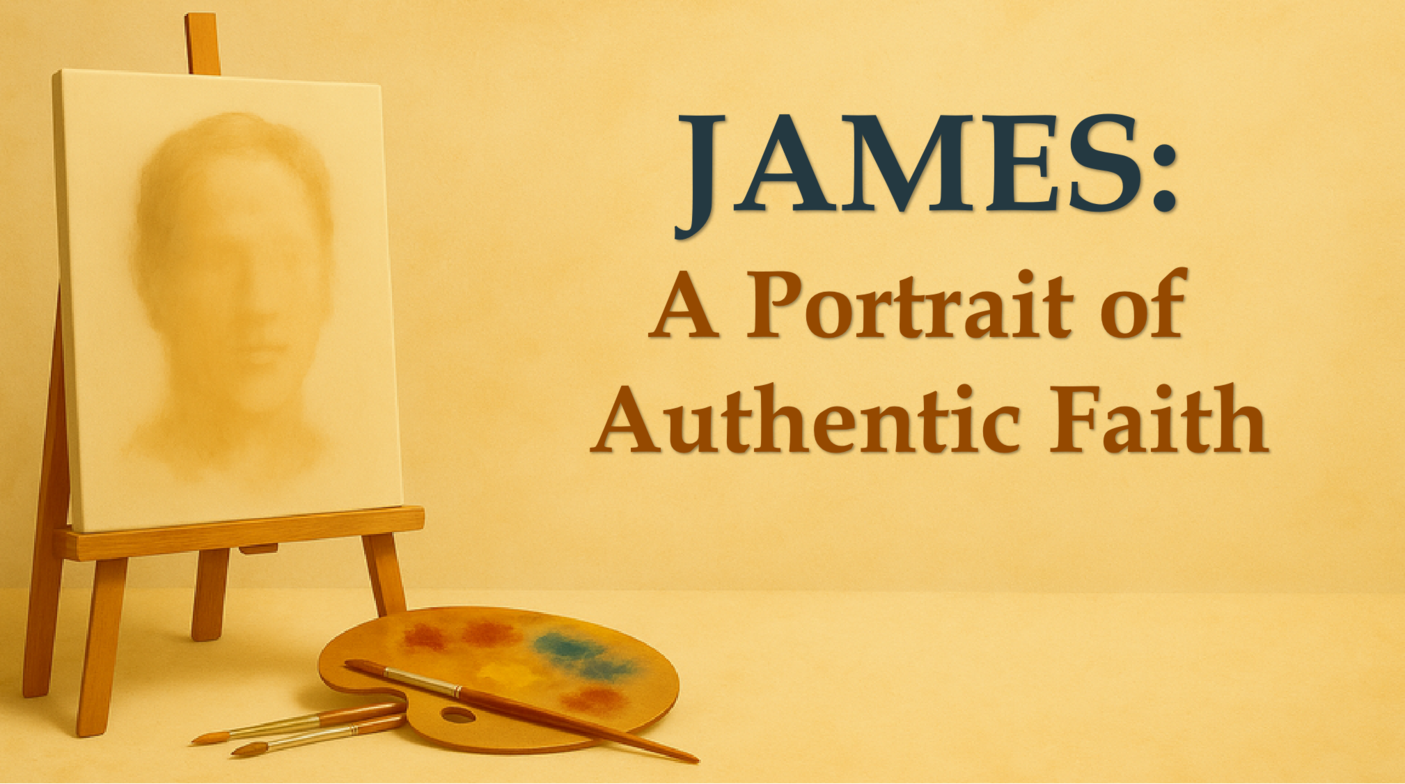How to Find God’s Wisdom When Life Feels Overwhelming


Have you ever been blindsided by something that left you spinning? Maybe it was the phone call from the doctor. Or the job that suddenly vanished. Or the betrayal you never saw coming.
Trials like these have a way of disorienting us. They make us feel like we’ve been dropped into a maze with no map. Every turn looks the same, every option feels risky, and the pressure of “what if I choose wrong?” weighs heavy.
In those moments, what we need most isn’t an escape route—it’s wisdom. But where do we find it?
James 1:5–8 offers some of the most hope-filled, practical guidance in all of Scripture for people walking through the confusion of suffering.
God Promises Wisdom for Trials
James begins with a simple invitation:
"If any of you lacks wisdom, let him ask God, who gives generously to all without reproach, and it will be given him." (James 1:5)
That’s a promise. Not a vague “maybe,” not a “if you’re good enough.” God promises to give wisdom when His children ask.
But notice what kind of wisdom this is. It’s not just tips for life or clever advice for everyday problems. James has just been talking about trials producing endurance and maturity. The wisdom he’s describing here is God’s perspective for the hard places.
And that changes everything.
-
In sickness, wisdom helps you see God’s strength made perfect in weakness.
-
In grief, wisdom helps you cling to the hope of resurrection even while tears fall.
-
In financial strain, wisdom helps you trust that life doesn’t consist in possessions and frees you to stay generous.
-
In betrayal, wisdom points you to Jesus—betrayed for you—so you can forgive instead of becoming bitter.
Wisdom doesn’t erase the trial. But it reframes it, helping you walk through it with God’s priorities instead of being paralyzed by fear.
God Gives Generously—Without Rolling His Eyes
Maybe you’ve asked God for wisdom before and wondered if He’s tired of hearing from you. Maybe you’ve felt embarrassed to pray about the same trial again and again.
James reassures us: God gives generously, and “without reproach.” That means He never scolds, never sighs, never says, “Really? You again?” His heart is not calculating or reluctant. He is the giving God—always openhanded, always welcoming.
Think of a pitcher tipped forward, always pouring into thirsty cups. That’s the posture of your Father in heaven.
And the wisdom He gives isn’t just a thing—it’s a Person. Paul says in 1 Corinthians 1:30 that Christ Himself has become wisdom for us. To ask God for wisdom is to ask for more of Jesus—His mind, His heart, His peace.
What About Doubt?
James does add one condition: “Let him ask in faith, with no doubting.” That can sound intimidating. What if you’re struggling? Does that mean your prayer won’t be answered?
Here’s the good news: the “doubt” James is talking about isn’t the same thing as honest questions. In Greek, the word means “divided judgment”—split loyalty between trusting God and clinging to self. It’s like trying to sail with one foot on the boat and one foot on the dock—you won’t get far.
That’s why James compares it to being “like a wave of the sea, driven and tossed by the wind.” When your heart is split, you’re unstable—one day trusting, the next day panicking, never steady.
But honest questions are different. The Bible is full of people who wrestled with God in faith:
-
Job cried, “Why, Lord?” but still declared, “Though He slay me, yet will I trust Him.”
-
David asked “How long, O Lord?” again and again in the Psalms, but always returned to confidence in God.
-
Thomas demanded proof, but when Jesus met him, his questions led to the confession, “My Lord and my God!”
Do you see it? Questions asked in faith pull you closer to God. Divided loyalty pulls you away.
How to Exercise Faith in the Middle of a Trial
So how do you “ask in faith” when life is overwhelming? Here are three simple steps:
-
Believe what God says. Take His promises as true, even if your emotions lag behind. He has promised to give wisdom. Anchor there.
-
Commit to God’s way. Don’t hedge your bets with backup plans that ignore Him. Faith says, “Even if I don’t understand, I will trust You.”
-
Trust what God gives. His wisdom may not remove the trial, but it will sustain you in it. Trust that His provision is enough.
This is what steady faith looks like—not a storm-free life, but an anchored heart in the middle of it.
The Cure for a Divided Heart
James closes with a sobering line: “He is a double-minded man, unstable in all his ways” (1:8). A divided heart doesn’t just weaken your prayers; it destabilizes your entire life.
The good news? God doesn’t leave us split in two. The same grace that saves us also sanctifies us—making our divided hearts whole. Christ, who never wavered in His devotion to the Father, offers His steady heart to us.
When you surrender to Him, He unites your will, strengthens your faith, and steadies your soul. And with that steady faith, you can ask God for wisdom and actually receive it.
A Hymn Born Out of Trial
In 1865, Lina Sandell, a young Swedish woman, watched her father drown after falling overboard during a boat trip. The grief was crushing. But out of that heartbreak, she wrote the hymn Day by Day.
Her words were not written from comfort, but from trial. They testify to God’s promise to provide daily strength and wisdom:
Day by day, and with each passing moment,
Strength I find to meet my trials here.
Lina could have let her heart be fractured by despair. Instead, she anchored her faith in the God who gives wisdom moment by moment.
Hope for You Today
If you’re in the middle of a trial today, here’s the hope of James 1:5–8:
-
You don’t have to figure it out alone.
-
You can ask God for wisdom, and He promises to give it generously.
-
You can come with your questions, as long as your heart is anchored in Him.
-
You don’t have to live divided. Christ makes you whole.
Here’s the takeaway: Authentic faith doesn’t try to navigate trials by itself—it runs to God for wisdom, trusting Him with a steady heart.
And when you do, you’ll find what Lina Sandell discovered: God’s wisdom isn’t a one-time deposit. It’s daily bread. Moment by moment. Enough for today.
